1. Acceptance and continuation of client relationship
1.1. This is the point which acts as filter or risks
1.1.1. Competent?
1.1.2. Adequate resources?
1.1.3. Integrity of clients?
1.1.4. Maintain professional standards?
1.2. Post-engagement assessment would also enable firms to decide whether the continuation of relationship is professionally desirable
2. Human resource
2.1. Major concern of all firms
2.2. Need adequate competent partners and key staff to perform audit engagements
2.3. Too much work would lead to too little time to think and reflect - major reason of quality failure
2.4. Image of the firm is directly related to the ability to attract new talents
2.5. Adequate training on technical matters and professional principles would be required
2.5.1. How do firms assure effectiveness of training?
3. Engagement performance
3.1. Engagement performed according to professional standards and relevant laws
3.1.1. Consistency of quality
3.1.2. Review and supervision
3.2. Consultation
3.2.1. Triggers, who, position and documentation
3.3. EQCR
3.3.1. Scope, other than PIEs
3.3.2. Protocols and accountability
3.4. Differences of opinion
3.4.1. Protocols and documentation
4. Monitoring
4.1. The weakest element for SMPs
4.2. How could this be performed internally in situation of a sole-proprietorships or small partnerships?
4.3. Who should do this? Enough experience and seniority?
4.4. Scope and protocols
4.5. Actions when audit quality is compromised and subsequent follow up
4.6. How are issue communicated across the firm?
4.7. Requires effective root cause analysis
4.7.1. Honest
4.7.2. Objective
4.8. Remediation plans which address the root causes and assessment of effectiveness
5. ISQC1 is not a standalone standard
5.1. ISQC1
5.1.1. Comply with professional standards
5.1.2. Reports are appropriate
5.2. ISAs
5.2.1. ISA 200 Overall objectives of audit
5.3. Code of ethics of professional accountants
5.4. Applies to firms
5.5. While the standard discusses "policies and procedures", should be focusing on the outcomes
6. Leadership responsibilities for quality
6.1. Promoting the culture of quality
6.1.1. Whose job is it?
6.1.1.1. Senior enough?
6.1.2. When too small to have structure
6.1.3. Experience, ability and authority
6.2. Tone from the top
6.2.1. Strategy to win in the market
6.2.2. Risk appetite of the firm
6.2.3. Misalignment of incentive
6.2.4. Measures to demonstrate seriousness of quality
6.2.4.1. How is quality linked to rewards
6.2.4.2. Penalty for failure to ensure quality
7. Relevant ethical requirements
7.1. Independence
7.1.1. Audit has no value if the firm is not independent from the client
7.1.2. Not just in appearance, but in substance
7.1.2.1. Accounting services?
7.1.2.2. Secretarial services?
7.1.3. The lack of understanding of the concept of independence can cause serious problems
7.1.4. Key processes to ensure the message regarding independence is clear
7.1.4.1. Annual declaration
7.1.4.2. Pre-engagement assessment
7.1.5. Clear protocols when independence is breached
7.2. Competence and due care
7.2.1. Need to assess whether the firm has partners and staff who have good understanding of industry and complexity of client's business model
7.2.2. Limitation in technical competency is one of the driver of risks to SMPs
7.2.3. Many partners do not have enough understanding of risk-based audit approach under ISA
7.2.3.1. Major firms have annual certification of important standards and framework
7.2.4. The ever changing business environment require real understanding of what are changing and how do the changes affect clients
7.2.5. Sometimes, failures could also happen in basic audit procedures such as bank confirmation or confirmation from debtors
7.3. "We have audited the financial statements in accordance with approved auditing standards....."
7.3.1. Hadith: It is not just for a man to sell his merchandise without disclosing its defects. It is proper for the vendor to tell the buyer of any defects of which he is aware. [Hadith of Ahmad Ibn Hanbal, on the authority of Wathilah
